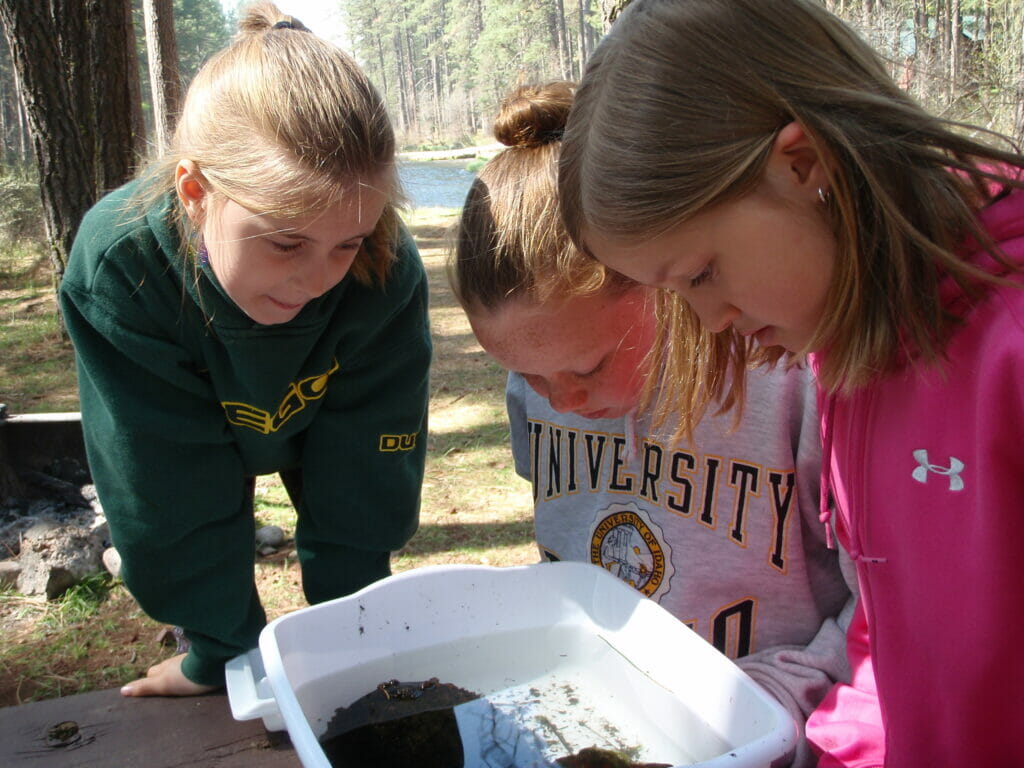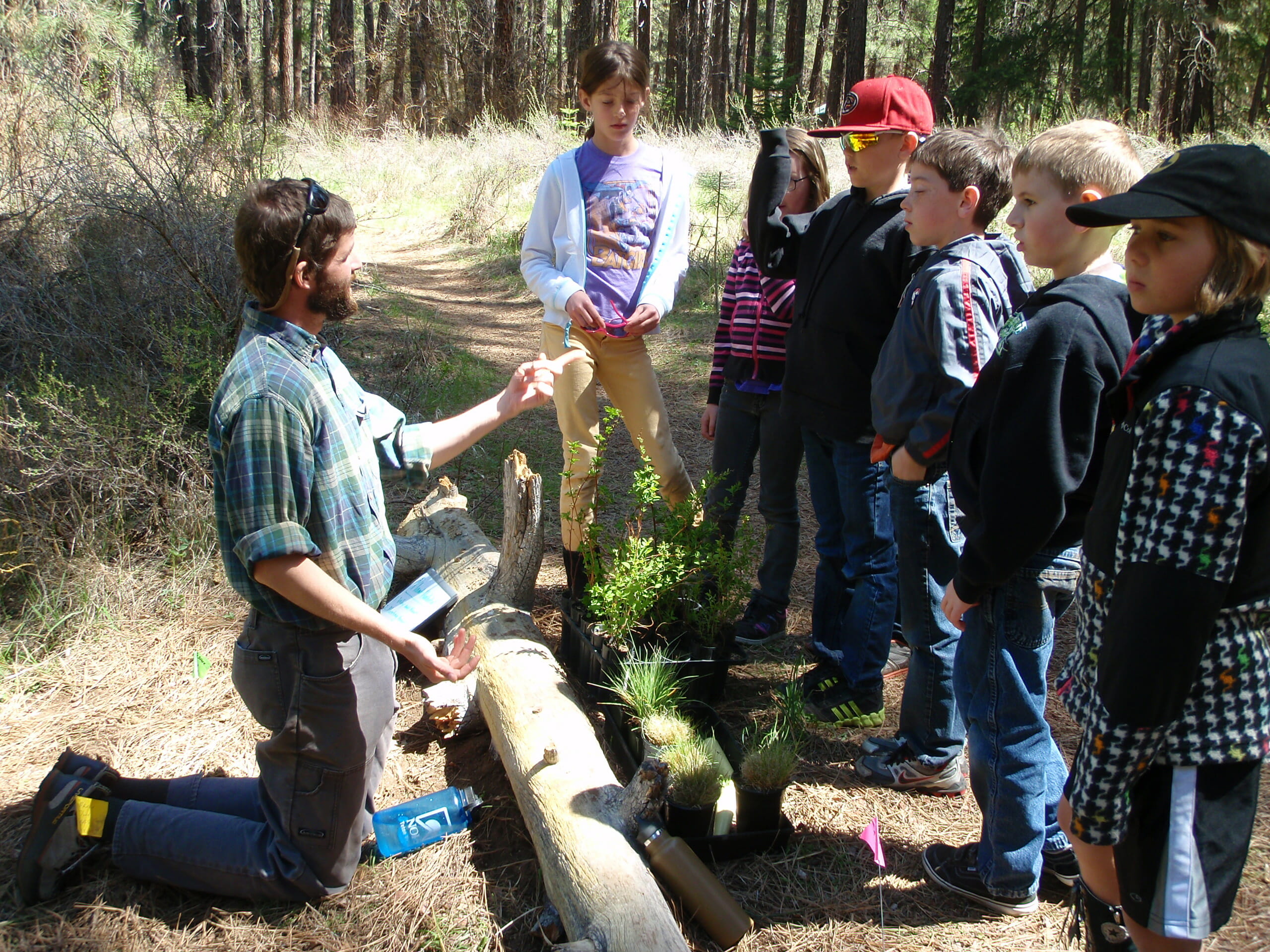When COVID-19 shut down schools educators found other ways to help students experience the river
About a decade ago Trout Unlimited launched a youth educational program in the Deschutes Basin of Oregon to build awareness of the importance of water and the health of rivers. The focus has been on key tributaries and sections of the Deschutes River like the Crooked, Fall and Metolius rivers. Field trips have also included the upper and lower Deschutes River.
Local communities along the river have enjoyed, and been challenged by, rapid growth in recent years. Education about issues associated with that growth is critical to keep these rivers, and rivers everywhere, clean and serving as a viable ecosystem.
In those 10 years TU is proud to have served more than 5,000 local students. During a typical school year, each student goes on two field trips, and explores in the fall and spring season two different locations along their local river.We are now looking ahead to another decade of educating youth.
We had plans for the Spring of 2020 to lead field trips for more than 800 students from 10 schools and 30 classes to the their local river sections. When news hit that schools were closing in March due to COVID-19, we knew it was time to bring the river to our teachers and students. Since I had a 3rd grader at home, I knew it was a project that needed to include her, as we wanted our youth involved.
As a result, my daughter, Ruby, and I crafted four virtual field trips to highlight four different river sections (Fall River, Metolius, Upper Deschutes, and Tributary for Lower Deschutes). We safely met our educators in the field and had great support from the Children’s Forest of Central Oregon. We wanted each student to see familiar sights and feel like they were out there with us, remembering key lessons and sparking fond memories.
Our field trips were mainly designed for our local students, with a mix of locations and lessons for students between 2nd and 5th grade. In this challenging time, we know all of us can appreciate some beautiful scenery around our Central Oregon streams and rivers, and the soothing sights and sounds that come from experiences in nature.
We weren’t sure how the virtual trips would be received, but it was soon apparent the teachers and students appreciated our efforts.
“I love this virtual field trip. I am assigning it for two days next week so kids can get the maximum benefit,” one 5thgrade teacher from Sisters, Oregon, told us by email after seeing one of the videos. “I think they will really connect to it because it is filmed at the places they’ve been to and planted. This also really aligns with what we are currently doing and the curriculum.”
Our virtual field trips provide beautiful looks at and peaceful sounds from our diverse Central Oregon rivers, but everyone can learn something that is familiar in your region. We connect viewers to the tops of rivers (headwaters), show small streams and bigger river channels, and discuss river sections that change based on flow management from a dam.

Our hope is for viewers to better understand how to study rivers, and look for evidence for the health of the habitat for different species, and the ecosystem as a whole. By observing the water clarity and color, the vegetation health and diversity, and fish and wildlife that are using the habitat, we can understand conditions of a river today and what changes might be needed for the future.
We hope you and your families enjoy these videos. We sure had fun making them. We also hope you have been inspired to study your local rivers and to appreciate the unique habitat found there. Educating students about the value of rivers to our communities across the nation empowers our children to care for them into the future.
Darek Staab is the Pacific Northwest Education Coordinator for Trout Unlimited. He is part of the Headwaters youth initiative at TU.



